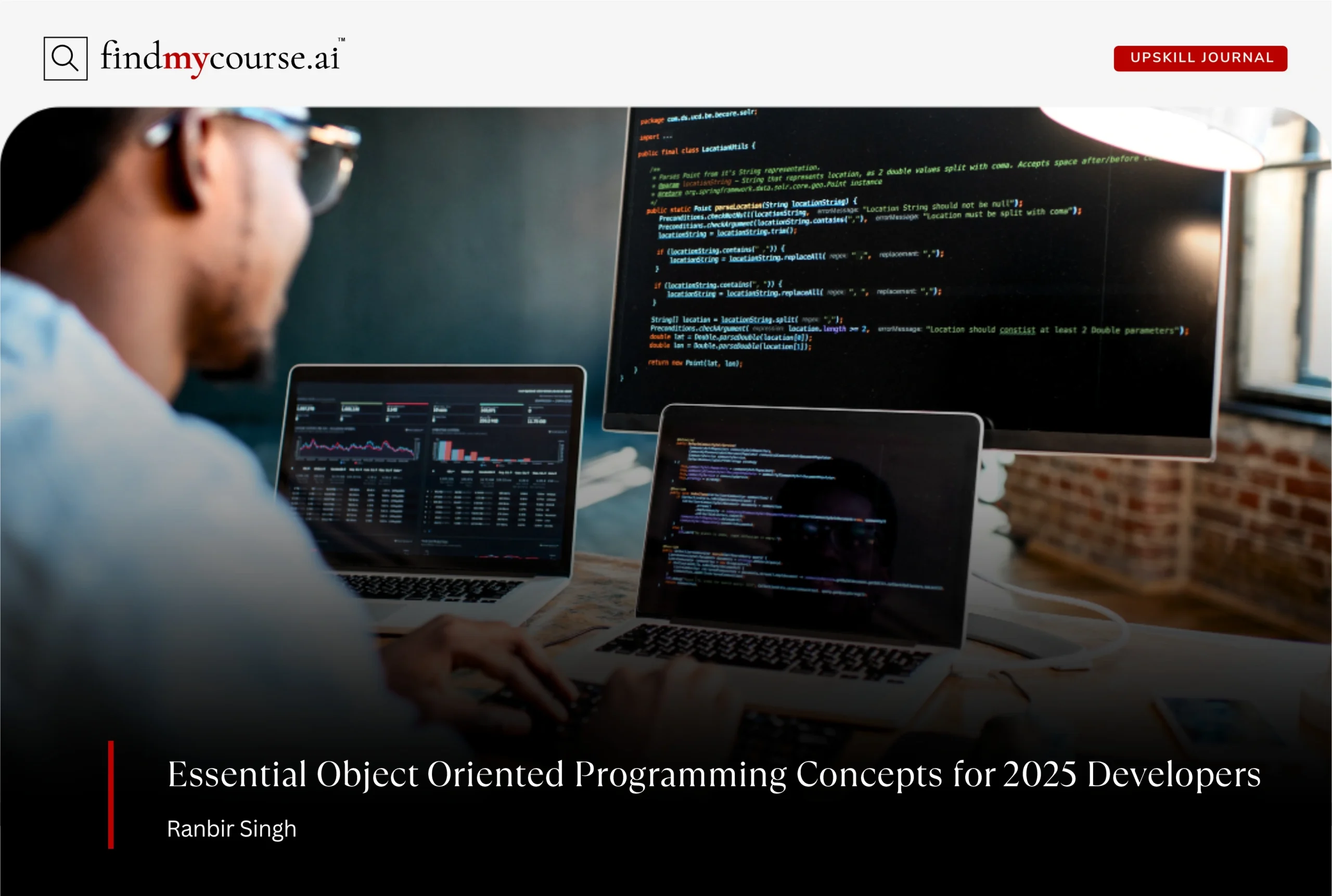In the world of modern software development, understanding how code is structured can make all the difference. Object Oriented Programming (OOP) is one of the most widely used approaches, shaping everything from simple apps to complex enterprise systems. It organizes software around objects—representing real-world entities—making programs easier to manage, extend, and maintain.
The core Object Oriented Programming Concepts may seem complex at first, but they can be understood through practical, real-world examples. Learning these concepts helps you see how software is organized, why certain design choices are made, and how to write code that is easier to maintain and extend. This guide will help you break down these concepts clearly and show how to apply them effectively.
What is Object Oriented Programming?
At its core, Object Oriented Programming (OOP) is a way of organizing code around “objects” rather than just sequences of instructions. These objects represent real-world entities—like a car, a bank account, or a customer—and combine both data (what the object knows) and behavior (what the object can do).
This approach makes programs more modular, reusable, and easier to maintain. Unlike traditional step-by-step programming, OOP lets developers design systems that reflect real-life interactions, making software more flexible and scalable. That’s why languages like Java, Python, C++, and C# heavily rely on OOP principles to build everything from mobile apps to large enterprise systems.
Core Object Oriented Programming Concepts You Must Master
Object Oriented Programming Concepts are the foundation of writing organized and efficient code, focusing on real-world entities as objects. These concepts make programs more flexible, secure, and easier to maintain. Let’s dive into each of these key principles to understand how they shape modern software development.
Encapsulation: Keeping It All Together
Encapsulation is the idea of bundling data and the methods that operate on it within a single unit—called a class. Think of it as packing your belongings into a suitcase. Instead of scattering clothes, shoes, and toiletries everywhere, you keep them organized in one place.
In programming terms, encapsulation ensures that an object’s internal details are not visible from the outside world. Users of the class interact only with its public methods while the underlying complexity stays protected. This not only improves security but also makes your code easier to update without breaking other parts of the system.
Professionals who master encapsulation often become better problem-solvers because they learn to build systems that are neatly organized, secure, and easy to expand.
Abstraction: Focusing on What Matters
Abstraction is about simplifying complexity. Imagine driving a car: you press the accelerator to speed up, but you don’t need to know how fuel is injected into the engine or how the transmission gears shift.
In OOP, abstraction works the same way. Developers design classes to expose only what’s necessary, hiding the intricate details from users. By doing so, they reduce confusion and make systems easier to use.
When you apply abstraction, you create software that’s more user-friendly and maintainable. For career growth, this translates into the ability to build applications that clients and teams actually love using.
Inheritance: Building on What Exists
Inheritance allows one class to “borrow” the features of another. Think of it as family traits: a child inherits characteristics from their parents, but also has unique qualities.
In coding, this means you can create a new class based on an existing one, reusing proven logic while adding custom features. For example, you might have a general “Vehicle” class, and then create “Car” and “Motorbike” classes that inherit its properties but also define their own.
For professionals, inheritance means less duplication and more efficient development. It also sharpens your ability to recognize patterns—a skill valued in roles such as software architect or systems designer.
Polymorphism: One Action, Many Forms
Polymorphism may sound intimidating, but the concept is simple: different objects can respond to the same action in different ways.
Imagine you have a command called “speak.” If a Dog object receives it, the result is a bark. If a Cat object receives it, the result is a meow. Same action, different outcome.
This flexibility allows developers to write cleaner, more adaptable code. In the workplace, it means you can create systems that are highly scalable and customizable—qualities every employer wants in their software.
Why These Concepts Matter for Your Career
Mastering the four pillars of Object Oriented Programming—Encapsulation, Abstraction, Inheritance, and Polymorphism—is more than just gaining technical knowledge. These concepts give you a strategic edge in the professional world, helping you think like a software architect rather than just a coder.
Employers today seek candidates who can build systems that are not only functional but also scalable, maintainable, and efficient. By understanding and applying these OOP principles, you position yourself as a problem-solver who can design robust solutions.
Key career advantages include:
- Higher earning potential: Developers with strong OOP skills are often offered better salaries.
- Improved career mobility: These skills open doors to advanced roles such as software architect, team lead, or systems designer.
- Ability to handle large-scale projects: Companies rely on OOP principles to manage complex applications serving millions of users.
- Preparation for leadership roles: Understanding frameworks and system design becomes easier, allowing you to guide teams effectively.
In short, mastering Object Oriented Programming Concepts equips you with both technical expertise and a professional mindset, making you a highly valuable asset in the evolving tech landscape.
Tools and Resources to Master Object Oriented Programming
Mastering Object Oriented Programming requires both hands-on practice and access to the right tools and learning resources. Leveraging modern development environments, frameworks, and online platforms can help you apply concepts effectively and build real-world projects.
Essential Tools for Practicing OOP
- Integrated Development Environments (IDEs): PyCharm, Visual Studio, and IntelliJ IDEA make coding, testing, and debugging much smoother.
- Version Control: Git and GitHub help you track changes, collaborate with teams, and manage projects efficiently.
- Frameworks & Libraries: Django and Qt allow you to implement OOP principles in scalable applications.
- Online Editors: Tools like Replit and CodePen let you experiment with concepts quickly, without complex setups.
Recommended Learning Platforms
- Udemy – Introduction to Object-Oriented Programming
- Beginner-friendly course that introduces core OOP concepts.
- Focuses on practical exercises to help learners apply theory.
- Coursera – Concepts of Object-Oriented Programming
- Structured, hands-on learning experience.
- Covers foundational principles and guides learners through real-world projects.
- Official Documentation & Community Forums
- Python.org, Java Docs, and similar official resources provide accurate references.
- Forums like Stack Overflow and GitHub communities help with problem-solving and learning best practices.
Final Thoughts
Learning Object Oriented Programming is about developing a mindset that makes software structured, flexible, and easier to maintain. By mastering the core concepts, you gain the ability to write cleaner code, design scalable systems, and solve complex programming problems with confidence. Consistent practice, building real-world projects, and using the right tools and resources will make these concepts intuitive and practical. Keep exploring, experimenting, and applying what you learn, and if you have any questions or need more help, just ask our AI assistant for personalized guidance.


